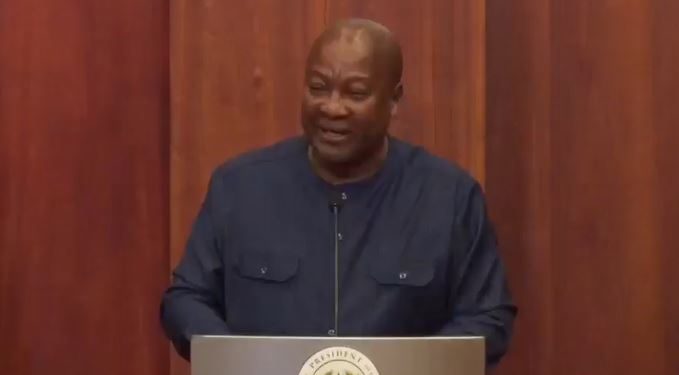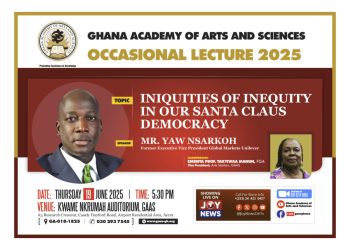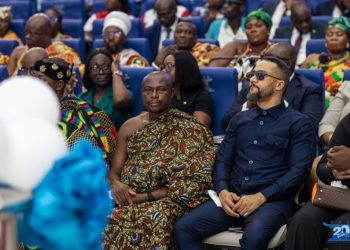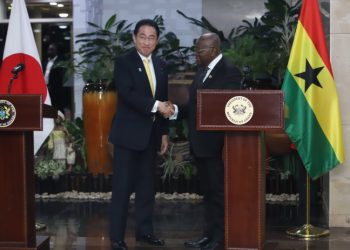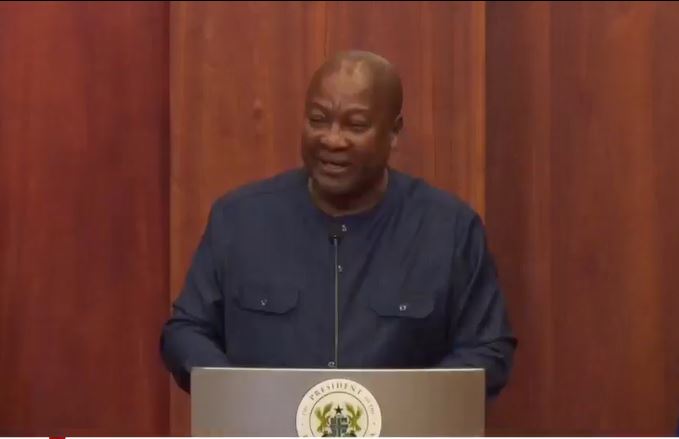
President John Mahama has challenged African nations to transform their mining sectors from mere extraction to value-added industrialisation.
Speaking at the opening of the three-day “Mining in Motion” summit, President Mahama highlighted the paradox of mineral-rich nations remaining among the world’s poorest.
“Africa’s minerals continue to fuel global industries while our people see little benefit. We must shift from exporting raw materials to building refineries, processing plants, and manufacturing capabilities that create jobs and capture value locally”, President Mahama stated.
The President outlined Ghana’s strategic approach to the mining sector reform, highlighting the development of downstream industries for mineral processing, formalising artisanal and small-scale mining operations and implementing strict environmental protections and promoting sustainable practices.
He also mentioned adopting technology for excavator tracking and chemical monitoring, and positioning Ghana as a key player in the global clean energy mineral supply chain.
President Mahama also touched on the global transition to clean energy and the increasing demand for critical minerals like lithium and graphite.
He emphasised Ghana’s readiness to play a central role in this new global landscape, establishing policy, legal, and investment frameworks to explore and develop critical mineral reserves.
The President concluded by emphasising the need for transparency, accountability, and good governance in the mining sector, ensuring that mining revenues benefit all communities and promote development.
In a detailed presentation, the Minister for Lands and Natural Resources, Hon. Emmanuel Armah-Kofi Buah (MP), elaborated on the need for responsible and sustainable artisanal mining practices in Ghana.
He highlighted the challenges posed by illicit mining, including environmental degradation and health implications.
Mr Buah says artisanal and small-scale mining has been a significant sector in Ghana, with over 1 million people engaged in the trade.
However, the sector has been plagued by challenges, including the destruction of water bodies and forests. He cited a recent report that 5,500 hectares of Ghana’s forest reserves had been destroyed.
To address these challenges, the Minister outlined a five-pillar approach to tackle the issue, including reforming the licensing regime, Law enforcement, Provision of Alternative Livelihoods, Stakeholder Engagements, and Reclamation of Degraded Lands with an emphasis on the Tree For Life program, which is set to kick off in June 2025.
He also highlighted the critical need to regulate and monitor the imports and use of excavators and other earth-moving equipment into the country.
Hon. Armah-Kofi Buah also emphasised the importance of community ownership and participation in mining activities.
He noted that large-scale mining companies would be encouraged to extend their best practices to the Small-Scale Mining Cooperatives.
The government would work with stakeholders to create jobs and promote sustainable mining practices.
He concluded by emphasising the need for a mindset shift in the mining sector—from prioritising profits over people and the environment to balancing economic development with social and environmental responsibility.
DISCLAIMER: The Views, Comments, Opinions, Contributions and Statements made by Readers and Contributors on this platform do not necessarily represent the views or policy of Multimedia Group Limited.
DISCLAIMER: The Views, Comments, Opinions, Contributions and Statements made by Readers and Contributors on this platform do not necessarily represent the views or policy of Multimedia Group Limited.
- President Commissions 36.5 Million Dollars Hospital In The Tain District
- You Will Not Go Free For Killing An Hard Working MP – Akufo-Addo To MP’s Killer
- I Will Lead You To Victory – Ato Forson Assures NDC Supporters
Visit Our Social Media for More

